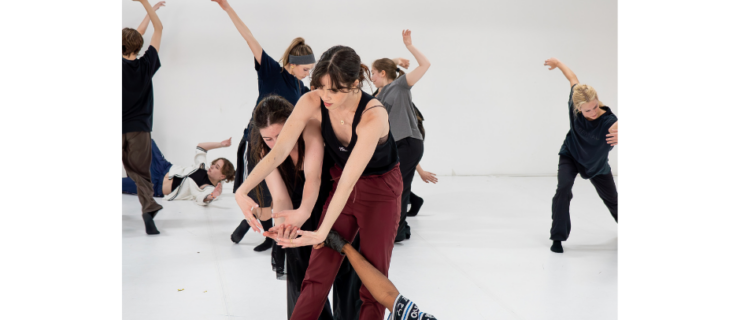Advice for Dancers
I sprained my ankle a few weeks ago during a rehearsal. It didn’t seem bad, but it hasn’t gotten better. My athletic trainer thinks I may have a “high” ankle sprain. What’s that?
Chris
Philadelphia, PA
You need to make an appointment with an orthopedic foot specialist to confirm your diagnosis. Unlike a traditional ankle sprain that happens when you injure the ligaments around the tip of your ankle bone, a “high” sprain damages the ligaments above the ankle that hold the shinbone and fibula together. (The fibula is the narrow bone that runs down the outside of the leg.) Both types of sprains may occur separately or together, and are graded I, II, and III, depending on their severity. Unfortunately, even if you’re only dealing with a grade I injury, a high ankle sprain can take three months to heal compared to three to six weeks for the regular kind. This may be due to a less extensive blood supply in the area above the ankle. Orthopedists often have dancers with a high ankle sprain wear a removable boot to speed up the healing process, then prescribe physical therapy several weeks later. You can stay in shape in a boot by working out on the stationary bike or doing Pilates. Check out the American Orthopedic Foot & Ankle Society for a referral (www.aofas.org).
I’m terrified of losing my job! Companies are letting dancers go, and it seems like no one is safe. My best friend, who’s in her early 20s, was told that her contract wouldn’t be renewed even though she’s a good dancer. I’ve also heard of companies that dropped top dancers with the highest salaries. How can I deal with my fear of losing the only job I love?
Lost and Confused
Miami, FL
Take a deep breath and prepare for a bumpy ride. During turbulent economic times, corporations and funders cut back on their support for the arts. Some dancers end up unemployed when their companies downsize. Job loss creates a cascade of stressors—from financial concerns to low self-esteem—that are particularly traumatic for dancers (see “Your Body,” page 26). Performing is a way of life; losing a dance job strikes at the heart of your identity. It helps to have a backup plan. Developing a highly needed skill that can serve as a temporary survival job, such as massage therapy, will reduce some of your anxiety. Meanwhile, be thankful that you have a position in a dance company. Putting your heart into your work might help you keep it!
After wasting too much time yo-yo dieting, I finally sought treatment to learn how to eat normally. It’s taken a year to train myself to avoid the things that led me to starve and binge. But now I have to lose weight to be cast in my dance school’s workshop. I don’t know how to find a middle ground where I can diet and be healthy. My mind immediately goes back to those old tricks!
Haunted Dancer
Brooklyn, NY
First, you deserve major kudos for striving for a healthy lifestyle to handle the physical demands of dance. You’re also right to be scared of outside pressures to lose weight. I don’t know any dancer who responds positively, let alone someone with a prior eating disorder. To handle this tricky situation, talk to a dance medicine professional who specializes in eating problems. You also need time, because changing exercise and eating habits is best done in stages. Your doctor should ask your dance teachers to back off as you incorporate healthy ways to increase your metabolic rate through aerobic exercise and weight training, while slowly substituting high-caloric foods with yummy lower-calorie alternatives. To find a referral for a specialist in your area, contact the Renfrew Center (www.renfrew.org) or the executive director of the International Association for Dance Medicine & Science (www.iadms.org).
I feel torn between attending college and going for a career in dance. Neither of my parents has an artistic background, so it’s difficult to justify my decision to pursue a career that may not happen. What do you think?
Caught Between Two Worlds
Wichita, KS
I can understand your parents’ concern. Success in the performing arts can be unpredictable. One director may like you, while another has a different set of aesthetic requirements. The current economic downturn also doesn’t increase your chances of landing a job. What can you do? Many modern dance and musical theater students go to college or a conservatory before starting a professional career because the additional training helps your chances of finding work. Ballet dancers usually tend to skip college, unless the school has a strong ballet program. All dancers, regardless of the genre, can take one or two college courses a semester, whether they are employed or looking for a gig. Check out Dance Magazine’s College Guide (www.dancemagazine.com/collegeguide), as well as “Dancing Toward a Degree” in DM’s August 2008 issue. Remember, you can pursue your dream in dance without giving up on college before, during, or after performing!




